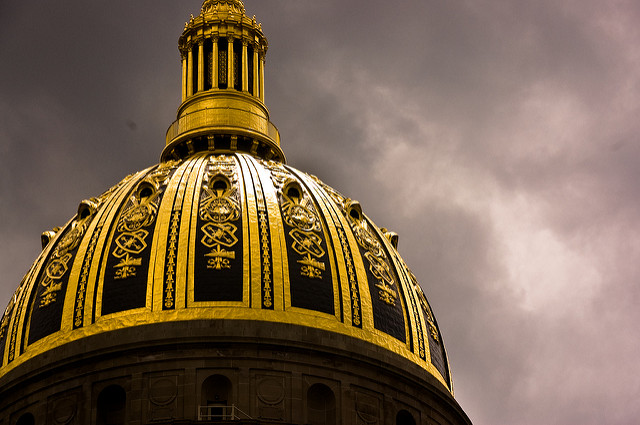
With less than two weeks remaining in West Virginia’s 2016 Regular Legislative Session, budget work continues as part of an effort to address a $400 million overspending problem in this fiscal year. The new Republican majority has made great strides in protecting taxpayers and workers in the Mountain State this year, passing a repeal of the state prevailing wage law and making West Virginia the 26th Right-to-Work state.
In the final days of session, however, taxpayers remain at risk. In his 2016 budget, Gov. Tomblin (D-W.Va.) proposed a number of tax increases on tobacco and tobacco-free smoking cessation products, including a 45-cent-per pack cigarette tax. The state Senate amended and passed that plan, in the form of Senate Bill 420, increasing the state cigarette tax by $1-per pack, which would make the state rate $1.55-per pack. This is a misguided approach to fixing an overspending problem and will only create more volatility in the budget in the long term.
As Grover explains in his letter to the legislature:
“Targeted excise taxes have proven to be unstable sources of revenue, and ultimately can cause a reduction in tax receipts. Increasing the state¹s reliance on tobacco taxes by increasing them by $1 per pack will not necessarily generate more revenue in the long term. When Illinois nearly doubled its cigarette tax in 2012 by raising the tax $1-per-pack; it generated $138 million less than projected. A reduction in tax receipts is a common occurrence amongst cities and states that attempt to discourage consumption with higher costs. In fact, only three out of the 32 state tobacco tax increases, enacted between 2009 and 2013, have met or exceeded tax revenue projects.“
Those in the public health community have a good reason to be concerned with SB 420 as well.
“Anti-smoking activists and public health advocates should be concerned about the next target of tax hikes contained in SB 420: electronic cigarettes and vapor products. These tobacco-free technology products are helping tens of thousands of smokers make the transition to far healthier alternatives. By imposing a 7.5-cent per mL tax on e-cigarettes and retroactively requiring taxes to be paid on store inventory, this punitive tax is both anti-health and a shameless cash grab.
One vape shop owner in Monongalia and Harrison counties has already stated that this would cost him between $30,000-$50,000 up front. It is reckless to destroy with tax hikes small businesses accomplishing what tax hikes on cigarettes never could, getting people to quit smoking.
Taking aim at e-cigarettes with higher taxes works against efforts to reduce the harm associated with smoking. A number of studies have shown that electronic cigarettes can improve health and prevent disease. By choosing to “vape” e-cigarettes, consumers get their nicotine fix without the combustion and smoke, which are responsible for many of the negative health effects of tobacco cigarettes. A Public Health England study found that e-cigarettes are 95-99% less harmful than tobacco cigarettes. The legislature should reject raising taxes on healthier, life-saving products.”
Click here to read Grover’s letter on Senate Bill 420.
Another piece of legislation that recently passed the House Finance Committee by a voice vote, risks being used as a Trojan Horse for a tax increase. House Bill 2704 would broaden the list of products and services subjected to the state sales tax and lower the rate from 6 percent to 5.5 percent at the end of 2016.
As Grover explains in his letter to the House of Delegates:
“HB 2704 represents a step in the right direction because it broadens the base of products and services subjected to the sales tax while lowering the rate overall. Principally, this is what conservative tax reform looks like. Caution must be taken, however, to ensure that HB 2704 is revenue neutral, if static scoring is applied, where economic growth is not considered. If dynamic scoring is applied, it is likely that this legislation would generate more revenue for the state in the long term and that would not constitute a tax increase because it is accomplished through growth.
If the broader sales tax rate is not reduced to a rate that makes this a revenue neutral bill, voting for it will constitute a violation of the Taxpayer Protection Pledge, the written commitment many lawmakers have made to their constituents to oppose tax increases.”

